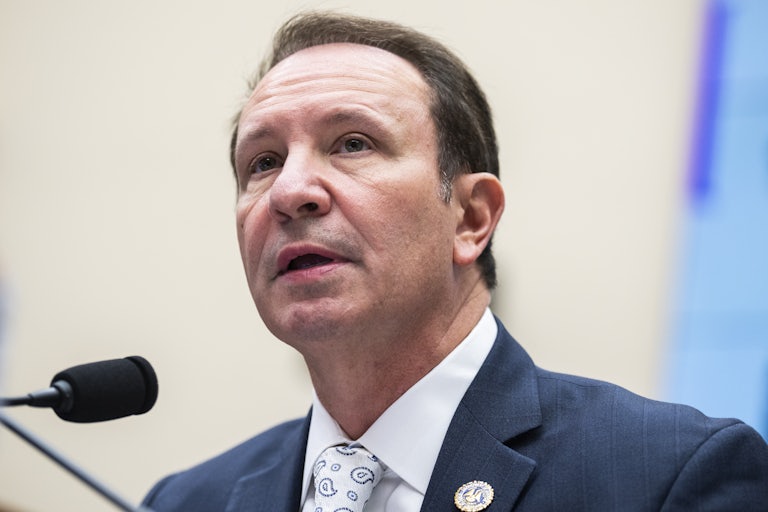Louisiana’s Ten Commandments Law Already on Its Way to Supreme Court
Louisiana’s governor said he can’t wait to be sued. He just got what he wanted.

Last week, Louisiana Governor Jeff Landry signed into law a controversial bill requiring the Ten Commandments to be displayed in public school classrooms. Shortly before, he told donors at a GOP event in Tennessee, “I’m going home to sign a bill that places the Ten Commandments in public classrooms. And I can’t wait to be sued.” Sure enough, Louisiana parents and a coalition of civil liberties organizations are granting him his wish.
The ACLU, Americans United for Separation of Church and State, and the Freedom From Religion Foundation, along with the parents of children enrolled in Louisiana public schools, filed a lawsuit against the state for violating the religious freedom of students on Monday. The move was widely expected, not just by Landry and religious conservative pugilists, but also by a consensus of legal experts, who claim the law is unconstitutional. Supreme Court legal precedent is on their side; two previous attempts to mandate similar displays were struck down.
But Landry’s giddiness for the upcoming legal fight echoes the attitude of the bill’s co-author, Louisiana State Representative Lauren Ventrella, who, in the midst of a flailing attempt to defend the law on national television, revealed the Christian conservative strategy on which she and Landry will rely.
“Now it is a different bench” on the Supreme Court, Ventrella told CNN’s Abby Philip. With a 6–3 conservative majority—including religious fundamentalist Christians Amy Coney Barrett and Samuel Alito, and multiple justices who have shown a willingness to depart from precedent capriciously—advocates of the law are hoping to move the lawsuit through the courts until it finds a friendly reception at the Supreme Court.
In the meantime, though, they’ll continue to run roughshod over the First Amendment.












